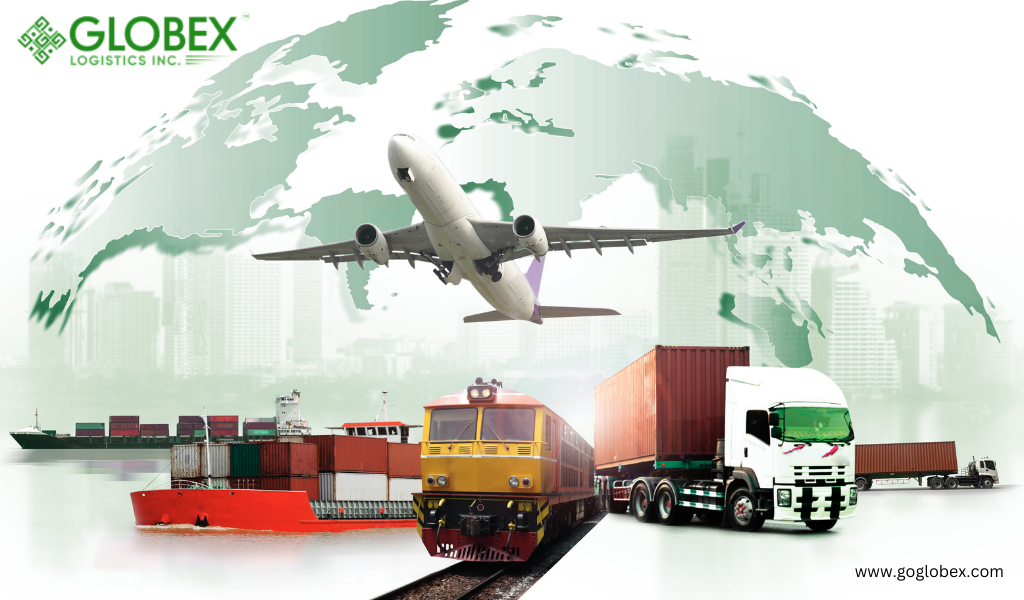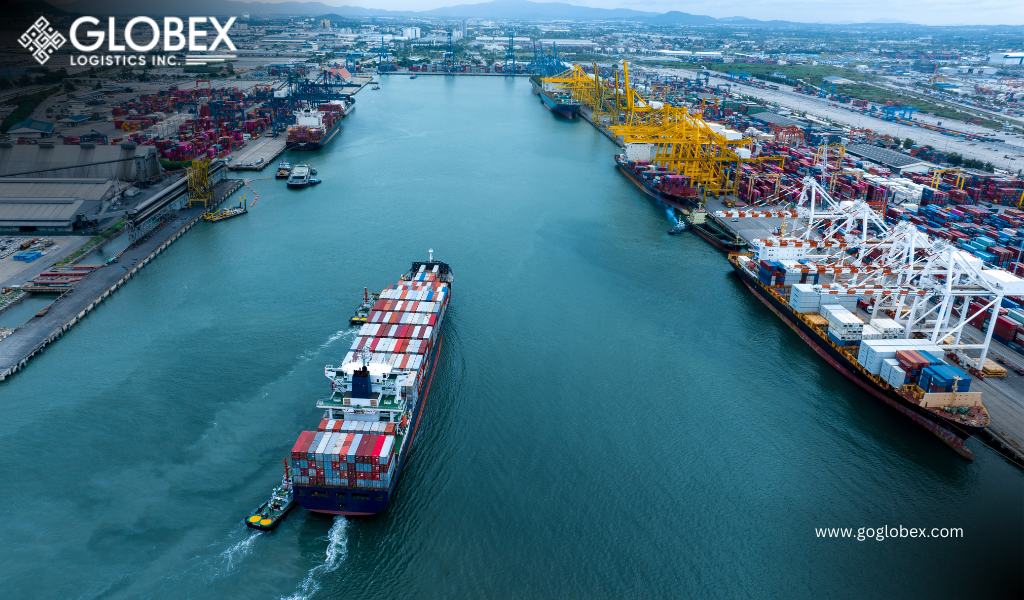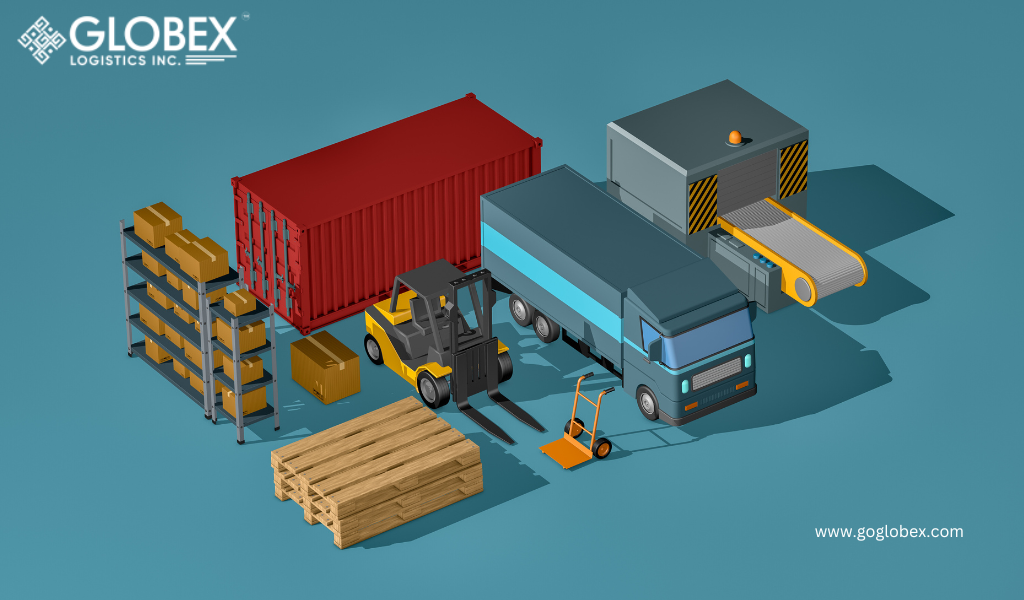
Why Intermodal Transportation Services Is the Future of Freight Logistics?
Practices of intermodal transportation services are a game changer in global logistics. The intermodal transportation industry helps to improve supply chain efficiency, cost-effectiveness, and sustainability. The future of freight logistics depends on the sustainability, environmental well-being, cost reduction, and flexibility of transportation services. Intermodal freight logistics have all those qualities to compete with other transportation services in the future.
Intermodal transportation is different from multimodal transportation. Multimodal transportation is managed under one single contract with one carrier. where intermodal transportation is carried out with different carriers under different contracts. In multimodal transportation, different modes of transportation are used under only one bill of lading; that carrier is responsible for moving the shipment in all transportation modes.
What Are Intermodal Transportation Services?
- In intermodal freight logistics, various modes of transportation are used to move the cargo from origin to destination. Trucks, trains, ships, and air: this type of mode of transportation is used combinedly to move the cargo.
- By using standard containers, we can easily transfer cargo from one mode of transportation to the other without unloading or handling the actual cargo.
- For example, the loaded container from the origin port can be loaded on the truck for local transportation. The same container can be used to load on the barge for local water movement, or we can use the same container to load on the trains. The same container will be used to load on the vessel.
Benefits of Intermodal Transportation:
1. Value for money
The combination of rail, road, and sea transport helps to reduce the cost of fuel and lower handling costs. Goods are not unloaded until the container reaches its final destination, which helps to reduce the handling cost of loading and unloading. Train mode of transportation is the best alternative for long-haul freight as compared to trucking.
2. Efficient and reliable—
Intermodal transportation services are efficient as they permit a flawless transfer from one transportation mode to another. Intermodal freight logistics reduce delays due to congestion, breakdowns, and weather conditions.
3. Eco-friendly—
Use of rail and sea modes of transportation emits lower carbon than road transportation. The intermodal transportation industry comes up with a greener alternative in transportation.
4. Secured and lowered damage risk—
Cargo handling is minimized due to the use of standardized containers. which ultimately helps to reduce the chances of theft, loss, and damage of cargo. Intermodal shipping solutions do not depend on a single mode of transportation, which lowers the risk of unpredicted disruptions.
5. Minimize traffic congestion—
Intermodal transportation services reduce the tropic congestion by shifting road freight movement to rain or sea routes. This activity will improve road safety, increase the efficiency of the logistic network, and help in narrowing down the delays.
6. Government support and incentives—
Governments from many countries are actively promoting the intermodal transportation industry by aggressively investing in infrastructure projects, increasing rail networks, providing subsidies, and implementing policies that encourage businesses to adopt intermodal transportation services.
7. Standardization in freight handling—
Intermodal transportation services promote the use of standardized containers. Use of containers improves freight handling efficiency. Use of container insurance ensures loading and unloading across the different modes, which helps in reducing labor costs and minimizing the transit delay.
Role of Technology in Intermodal Freight Logistics
GPS tracking, IoT-enabled sensors, automatic data analytics, the use of AI, and such innovations play a crucial role in enhancing the intermodal transportation industry. Practices of technology help in streamlining the operation and optimizing route planning. Artificial intelligence and machine learning predict the demand pattern in the industry; they can optimize the cargo load, helping in reducing transit time.
Intermodal Shipping Solutions and Global Trade
Businesses need structured logistic solutions to manage international trade. Intermodal freight logistics make smoother cross-border freight movement, reduce complexities in the customs clearance process, and reduce tariff calculation. Integration of different types of transportation modes improves the flexibility of the international supply chain, which ultimately helps businesses to remain competitive in vigorous markets.
Future trend in the Intermodal Transportation Industry—
1. Broadening of rail connectivity—
Governments and private investors around the world are focusing on the development of rail networks. Many countries from Asia Pacific are consistently working on the improvement of rail networks to make intermodal transportation more efficient. The revamped rail network is reducing the dependency on long-haul trucking.
2. Sustainable practices and green logistics—
The use of electric, hydrogen-powered trucks, eco-friendly shipping methods, and carbon offset programs will help in green intermodal freight logistics.
3. Automation in intermodal shipping solutions
Smart tracking, AI-driven predictions, and autonomous trucks are smoothing operations and reducing costs.
4. Collaboration and digitalization—
The future of the intermodal transportation industry will see digital collaboration between transport providers, freight forwarders, and businesses.
Intermodal Transportation Services are unquestionably the future of the global supply chain. The benefits of intermodal transportation are cost-effective services, sustainability, efficiency, and flexibility, which makes operation smoother and encourages businesses to adapt intermodal shipping solutions.
Recent posts
categories




